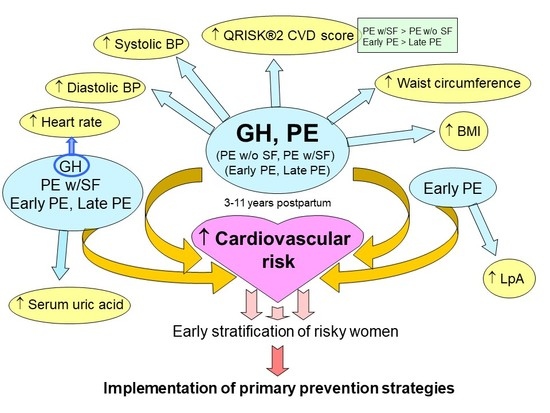Maternal Cardiovascular Risk Assessment 3-to-11 Years Postpartum in Relation to Previous Occurrence of Pregnancy-Related Complications
Abstract
Share and Cite
Hromadnikova, I.; Kotlabova, K.; Dvorakova, L.; Krofta, L. Maternal Cardiovascular Risk Assessment 3-to-11 Years Postpartum in Relation to Previous Occurrence of Pregnancy-Related Complications. J. Clin. Med. 2019, 8, 544. https://doi.org/10.3390/jcm8040544
Hromadnikova I, Kotlabova K, Dvorakova L, Krofta L. Maternal Cardiovascular Risk Assessment 3-to-11 Years Postpartum in Relation to Previous Occurrence of Pregnancy-Related Complications. Journal of Clinical Medicine. 2019; 8(4):544. https://doi.org/10.3390/jcm8040544
Chicago/Turabian StyleHromadnikova, Ilona, Katerina Kotlabova, Lenka Dvorakova, and Ladislav Krofta. 2019. "Maternal Cardiovascular Risk Assessment 3-to-11 Years Postpartum in Relation to Previous Occurrence of Pregnancy-Related Complications" Journal of Clinical Medicine 8, no. 4: 544. https://doi.org/10.3390/jcm8040544
APA StyleHromadnikova, I., Kotlabova, K., Dvorakova, L., & Krofta, L. (2019). Maternal Cardiovascular Risk Assessment 3-to-11 Years Postpartum in Relation to Previous Occurrence of Pregnancy-Related Complications. Journal of Clinical Medicine, 8(4), 544. https://doi.org/10.3390/jcm8040544






